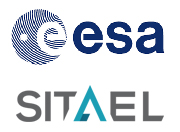Space avionics systems are witnessing a change from highly centralized intelligence to distributed autonomous functions, thanks to the availability of high capacity FPGAs and microcontrollers that offload tasks alternatively concentrated in the on-board computer. The glue of this change are the command and control buses, and a similar process led in the late 80s to the development and successive adoption of CAN as an automotive and industrial automation bus.
The CAN workshop will include tutorials, exhibits together with presentations on CAN bus physical and protocol layers. With the arrival of the QML-V qualified radiation tolerant CAN bus transceivers, and the impending qualification of several CAN-able rad hard microcontrollers, the availability of larger and larger Rad-Tolerant FPGAs, space communications engineers are now able to implement a CAN bus network for spacecraft on-board communications and controls of the same level of complexity than a terrestrial CAN-based embedded system.
A CAN bus system will allow engineers to replace older, more complex wiring communications architectures, with a CAN two-wire bus network. Reducing the number of wires and weight along with lower power consumption and easier testability will result in major cost savings for spacecraft manufacturers. The planned modifications for of ECSS-E-ST-50-15C will be given, as well as an update on flying and about-to-fly CAN applications, in established space industry as well as in nanosats and academia. Additionally an overview of modern design tools and method commonly used by automotive industry in design, development, production and maintenance of CAN bus networks for safety critical applications will be discussed.
REGISTRATION FEE:
- Early Bird Registration until 28th February 2017: 250€ (VAT excluded if applicable)
- Regular Registration until 28th April 2017: 300€ (VAT excluded if applicable)


